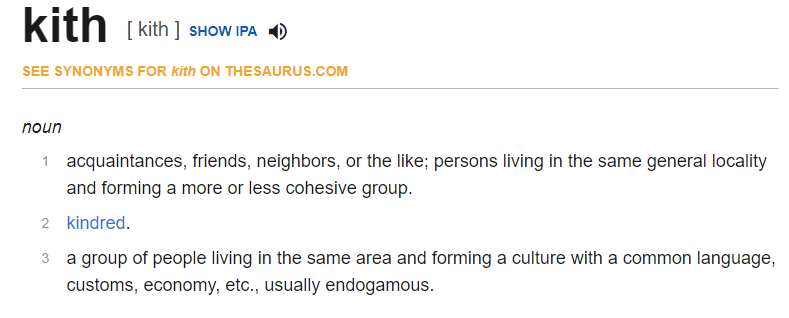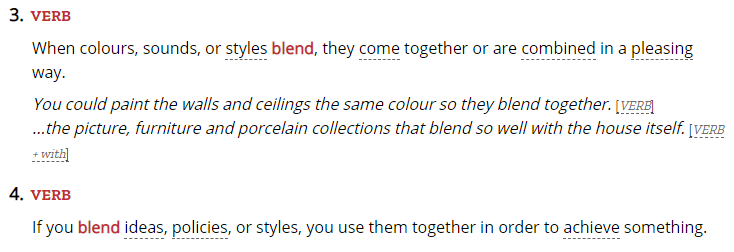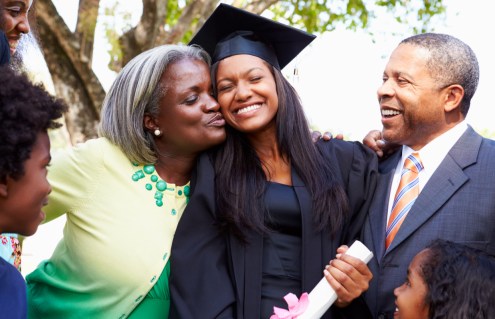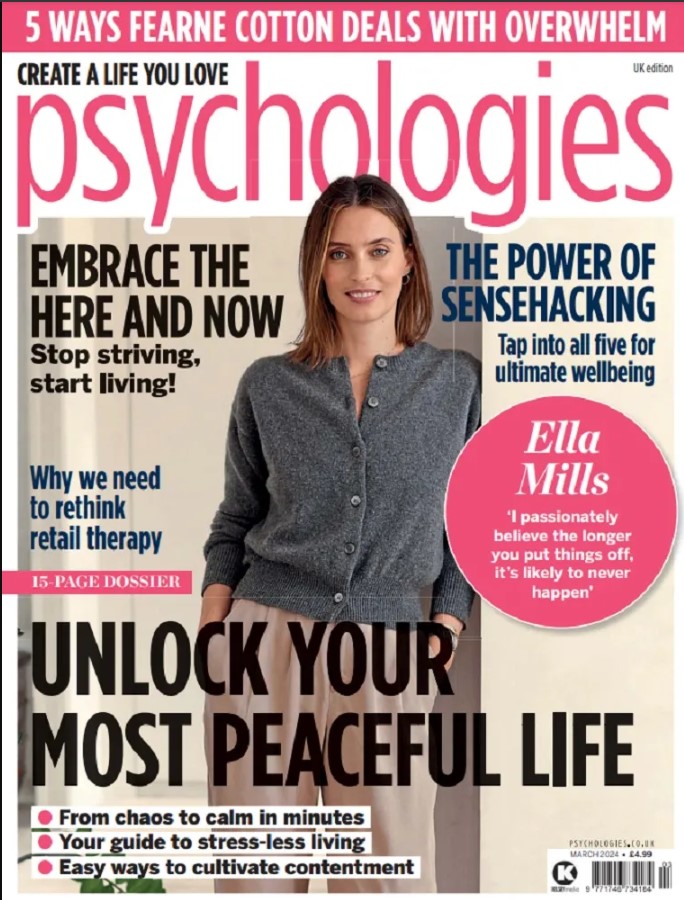Blended families and how to do them (or not)
There is such optimism when two people try to bring together two families in a new blend, so why is it so hard and so often go so wrong?
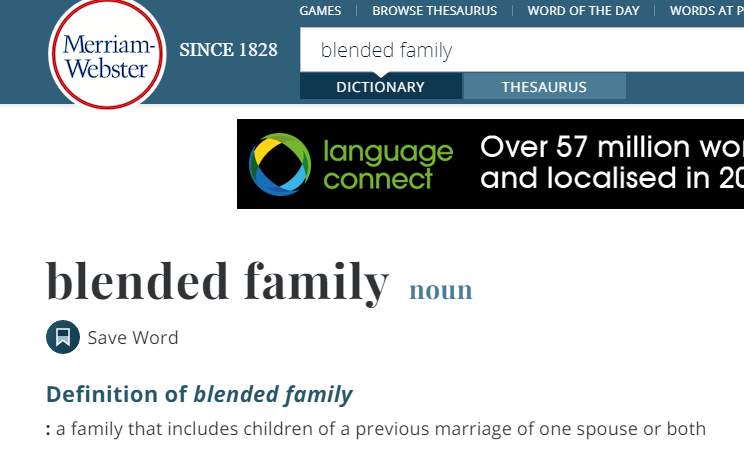
A couple of weeks I wrote about my experience of the start of going to relationship therapy. I’m exhausted after each session from the emotion of it all but actually the ‘aha’ moments are coming in the spaces between the sessions and one of my ‘aha’ moments is about blended families. To understand why we are where we are with this I think we need to understand some history.
The history of divorce
- The Matrimonial Causes Act 1857 was the first divorce law of general application but in practice was only available to the very rich
- The huge social changes in England during and following the First World War, particularly for the role of women in society, led to divorce law reform as it did to reforms in other areas. The Matrimonial Causes Act 1923 put men and women on an equal footing for the first time, enabling either spouse to petition the court for a divorce on the basis of their spouse’s adultery
- In 1937 another Matrimonial Causes Act introduced three more options for unhappy spouses to take to court, and so it became possible to divorce on the grounds of cruelty, desertion and incurable insanity as well as adultery.
- Divorce Reform Act in 1969 enabled either party to seek a divorce on the basis of the irretrievable breakdown of the marriage, but requires that the breakdown be proved by evidence of one of five “facts”: adultery, behaviour, desertion, or separation for 2 years and the other party’s consent to a divorce or separation for five years.
- It was not until 1984 that the bar on divorcing before 3 years of marriage had elapsed was reduced to 1 year.
- Family Law Act which introduced “no-fault divorce” was only enabled in 1996
Why does this matter? When my parents divorced in 1978 the Divorce Reform Act had only been in place for 9 years. I didn’t know anyone else in my class at school whose parents were divorced. I didn’t know anyone else who was brought up in a single parent house hold. Divorce had more shame about it as I talked about here.
My children know lots of other kids whose parents are divorced, and whilst my own divorce is not the most amicable, we have managed to part with more continuity of contact and less animosity than my own parents did. Not perfect but a generational improvement.
A number of my friends who are divorced have done so with great care and grace and are still friends with their ex partners. It seems that one generation on, we are divorcing better than our parents did. Mediation, collaborative divorce, ‘no fault’ divorce, improved child-care, less social shame and stigma all facilitate less fractious ending to a marriage.
Blended families – we’re making it up as we go along
Divorce rates are falling but in the UK in 2019 42% of marriages ended in divorce. As Esther Perel talks about, the institution isn’t working. But we continue to marry, and we continue to re-marry (where the divorce rates are even higher) and when we try and re-marry, we are often trying to bring two different families together as one.
When I look at my parents’ generation of divorcees, a pattern I observe in my admittedly unrepresentative and small sample, is that often when the men re-married, they took their energy and resources into that new marriage and family without trying to integrate the children from the first marriage into the second. A common story I hear from coaching clients and friends in their 40s and older is how, usually the father, went on to take up the father role in the new family, relinquishing that role in any meaningful way with the children of their first marriage. Blending wasn’t a thing, it was more like swapping one family for another.
It feels like my generation (those of us born in the late 60s and early 70s) are again trying to improve on the family swap, to the family blend, but this time we really are making it up as we go along. We might have learned from our parents how not to divorce and so have improved that, but because our parents didn’t try and blend, we have no role models.
So, what I observe happening, is that we are using the Little House on the Prairie or The Waltons as our guide, hoping that we too can create a cheerful, charming kitchen table of extended family cheer. It isn’t working.
Blending is hard
For the children it is hard enough to accept a new partner into their parent’s life, but to then have to live with that person and at some point, take discipline and guidance from them is hard. Then add in that partner’s children who are also going through the same adjustments and ask them to spend time together in the same house, which is usually the territory of one set rather than the other’s and there is a whole minefield of jealousies, boundaries, territories and anxieties which need navigating.
This whilst the adults are trying to work out how to be in relation to each other’s offspring, and often each other’s ex whilst also getting used to each other as parent rather than just lover/partner and all without role models or guidance. Then add in money, who pays for what, for whom, how much, how often and there is a veritable shit storm.
Even when there are no other children involved, introducing a step-parent into an existing family system requires time, patience, accommodation and, I have come to think, a lowering of expectations and the dilemmas over authority, money, space, time and identity still persist even when there is only one set of children.
Time to talk
When my partner moved in with me, we hadn’t talked about any of this in advance. I’m not sure how many of my friends did either. The decision to co-habit and blend is often take in the honeymoon period of the couple’s relationship when sexual chemistry and attachment bonding between the pair is high and everything seems possible. Ha!
The discussions seem to be more about ‘should we move in?’ rather than ‘How would that work for us all?’ I wish we had explored questions like these:
- What does being a step-parent mean to you? How do you want to be in that role?
- What does that mean for me? Is it OK? How do I see my own role changing?
- How will we share the space, the money, the chores, our time with our own lives, our own work, our own friends?
- What are we most worried about?
- What are we most excited about?
- What are our own role models of family and how might they show up in this new family?
- What did we learn about ourselves from our previous relationships and how might we apply that learning here?
I can’t believe how naive we were because we didn’t really spend long talking about any of that. We talked about things when they went wrong.
Nor did I talk to my kids about it I am now ashamed to say. The grown ups made a decision which inevitably has a huge effect on the kids. My kids were young, and I’m not saying that they have a right to vote on my relationships, but I could have asked them:
- How should we do this so it works for you?
- What are you worried about?
- What would help with that?
- What don’t you want?
- What do you want?
- What do you need?
Then I wish I had continued those conversation with him and them regularly, reviewing, taking the pulse of the household to maintain good health, not just deal with things when they have gone wrong.
Space
What I also see now is that we are trying to blend families using a model of family which we already know is broken because we are divorced. We are trying to re-create a new nuclear family which is even more complex than the first and expect it to work better.
I think we have to think again. I need space with my kids alone, just the three of us. He needs space without us. I need time alone. We, as a couple needed time alone. The three of them needed time without me.
I’m not sure that living in the same house is the best way to meet all those needs. Many of the people I listen to have their own places when they meet someone new and they either rent out one or sell up to add to the new family pot. I have come to think, listening to all the stories I do, and living through my own, that blending families would work better if we didn’t blend homes.
The nuclear family is defined by four walls and a shared front door. I think this needs to change if we are to blend better. Watching the same TV, using the same WiFi code and the same dishwasher are not enough to make a family, hence, I think the higher divorce rates in second marriages.
Re-defining family.
When I googled the root derivation of ‘family’ it made me smile to see that in the fifteenth century it meant ‘servant’ to the house hold! Isn’t that often how it feels! The old English term for family was ‘household’, so again, defined in terms of living accommodation. It is only in the 1800s that ‘family’ as we see it, in terms of relationship, became common.
The word ‘tribe’ doesn’t work either as it is defined in terms of bloodline as is ‘clan’ and ‘kin’.
But ‘kith’, this is the word that works:
Words matter. When we use the word ‘family’ we instantly have an image in our head of how it meant to be, based on what went before, which didn’t work, or we wouldn’t be blending!
‘Kith’ instead allows and honours the relationship but also allows it to take a new form, to find a new pattern of connected and yet different relationships. Notice that it says ‘living in the same area’, not necessarily ‘the same house’.
The word ‘blend’ is also interesting:
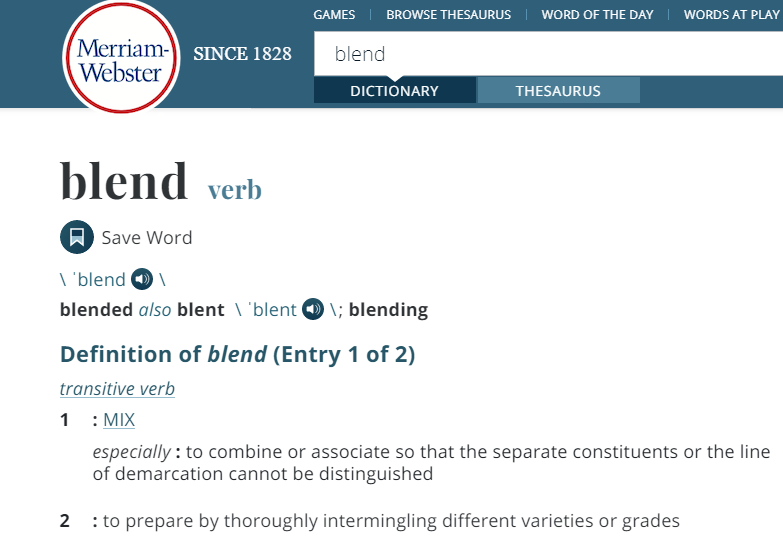
Notice that blending requires ‘preparation’ and the clear acknowledgments of ‘separate’ parts. Also that the outcome is a new creation which should be pleasurable.
Moving on
I have no idea how to move on, which is why we are in therapy. But I am really clear that the old model of trying to recreate a new nuclear family with an old recipe is like trying to make a coffee cake with a recipe for a Christmas cake, it’s never going to work.
I think we need to reconceptualise and move away from ‘blended family’ which is a noun and therefore fixed and static,to a verb which is active and continuous ‘blending kith and kin’. I think we need to see this more as experimental cookery. We have ingredients we are familiar with (our family) and new ingredients (them and their family) and so instead of trying to bake a cake based on an old recipe, we need to explore and experiment: How much of this? How long for that? Sieved? Stirred? Left to settle? Separated? Too sweet? Too sour? Too rich? Too plain? Too heavy? A loaf tin or paper cup cases?
And I get that it is hard because the social ‘norm’ for ‘happiness’ is one house, one dinner table, one bank account and one front door. But we need to see that for what it is, possible for some, outdated for many, and toxic and destructive at worst.
If we understood that this very ‘blending’ is an ongoing, creative process, then we would allow ourselves to keep tweaking and updating our recipes as children and adults go through the different ages, stages and storms of life. If we could peel off the old notion of family and create something new, unique to our kith and kin then I think we stand a better chance of making something which brings all the ingredients together to bring out the best of them.
So throw our your old recipes and instead start conversations with your kith about the kind of blends you’d like to experiment with.
x
Julie Leoni
Coach, author, podcaster, facilitator, Yoga and psychology teacher, learner
I have over 30 years of experience and qualification in various therapeutic and meditation/mindfulness based approaches. I work with change. Some changes we chose, others happen to us. Sometimes we know we want to change but don't know how. Sometimes we don't want to change but external events or people are forcing us to change. The menopause, children leaving home, the end of a relationship or job, becoming a parent, coming out, bereavement are just some of the personal changes I support people with. I also work with people who want to make changes to their life and wider world in response to social issues such as Covid, the climate crisis and racial, sexual and gender inequalities. Times are changing whether we want them to or not and we need to be nimble, agile, curious and open in order to part of the new story emerging. Work with me to get clear on what matters to you, what makes your heart sing and what kind of future you want for yourself and those you love. It is possible to live differently, get in touch to explore how.

